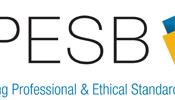Ethical Decision-Making
Ethics can be defined as standards that indicate how one should behave based on moral duties and virtues. As a practical matter, ethics is about how we meet the challenge of doing the right thing when that will cost more than we want to pay. One must have the ability to discern right from wrong and good from evil, and then commit to do what is right or good. Most people have convictions about what is right and wrong based on religious beliefs, cultural roots, family background, personal experiences, laws, professional norms and political habits. These are not the best values to make ethical decisions by, not because they are unimportant, but because they are not universal. There are areas where the universal value of respect for others dictates tolerance and respect for each person. The fact that everyone has a personal value system that includes opinions and beliefs about what is right and wrong does not mean that ethics is purely a personal matter.
Ethics refers to moral norms, how people should behave according to general moral principles about what is good and right. While every person must decide for himself how to regard his moral obligations, it is not correct to think that ethics is entirely personal. It is likely that personal conscience will have a wider range of values and beliefs than ethical norms. When these values add to the ethical norms there is no conflict between universal ethics and personal ethics. Unfortunately, some people seek to impose their morals on others as if they were universal ethics.
A person who believes that certain races are inferior to others and therefore that it is right to oppress or persecute those races has adopted a personal value system that is unethical. Making consistently ethical decisions...


